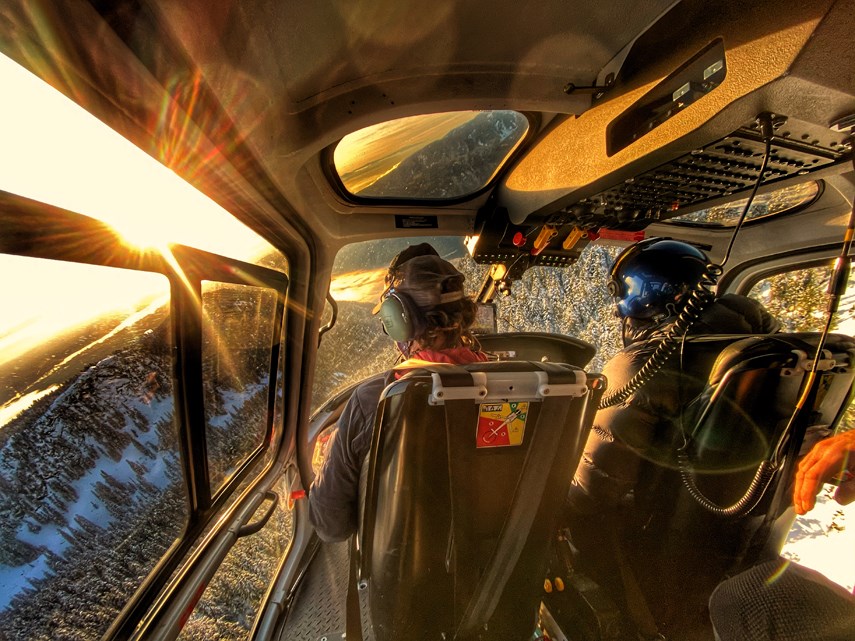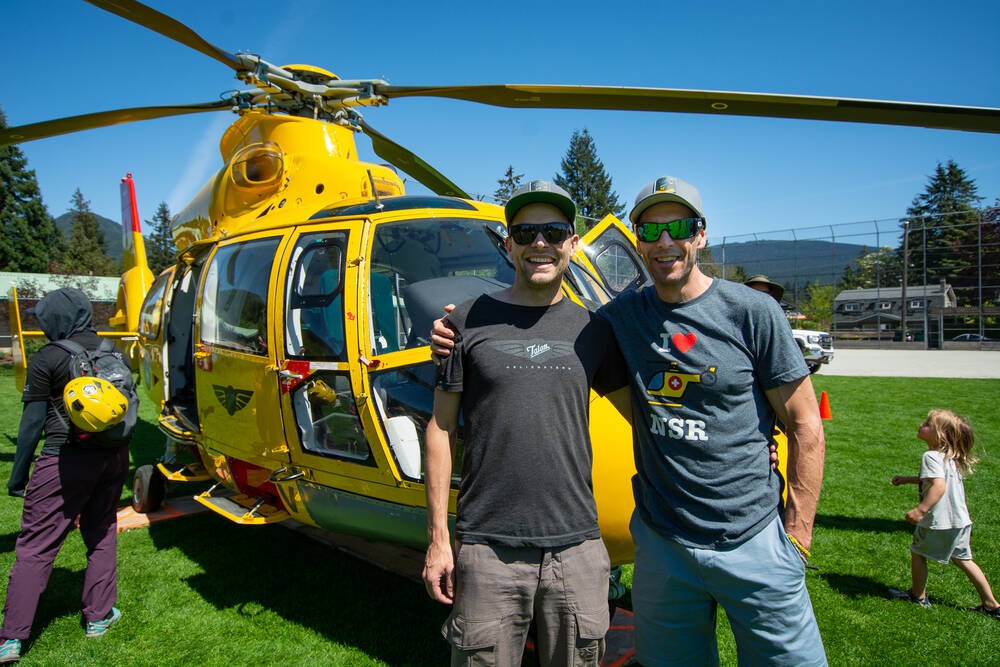- Reaction score
- 2,933
- Points
- 1,090
You could separate the SAR budget out but I dont see the net gain for the CAF. The CAF budget would just be smaller

Or maybe move 442 to Whitehorse.....
I think the location on the island is much better. I’d like to back that up with some data, but I think it’s safe to say a majority of calls are closer to the more populate areas and waterways .
In the COA stage the rumoured number that was being tossed around off the top of my head was something like 90% of the cases were within 150 NM of Comox. OTOH there’s less thinking involved to launching an airplane when it’s so close, ie I don’t know if there’s more or less consideration given to other assets when the professional asset is that close.I think the location on the island is much better. I’d like to back that up with some data, but I think it’s safe to say a majority of calls are closer to the more populate areas and waterways .
There are just more cases around southern Vancouver Island. I personally responded to a SAR a day, three days running once, and I was not even primary SAR.In the COA stage the rumoured number that was being tossed around off the top of my head was something like 90% of the cases were within 150 NM of Comox. OTOH there’s less thinking involved to launching an airplane when it’s so close, ie I don’t know if there’s more or less consideration given to other assets when the professional asset is that close.
FTFY.There are just morecasesstupid people around southern Vancouver Island. I personally responded to a SAR a day, three days running once, and I was not even primary SAR.
Potato. Potatoe…FTFY.
Shouldn't affect the overall budget one iota. Would just move SAR, equipment, personnel (seconded from CAF), training, operations onto its own line in the budget but the sum would be the same. It would also mean that when budget cuts come, Transport wouldn't have to slice and dice elsewhere in order to maintain the SAR budget which cannot effectively be reduced at all.You could separate the SAR budget out but I dont see the net gain for the CAF. The CAF budget would just be smaller
On the old SRN 6 Hovercraft supoorting the herring roe fleet off of Comox, I got to deal with 3 separate hand/finger amputations and a heart attack in about 2 hrs. A lot of things can happen concurrently in the South Coast Region. The synergy between the SAR Techs, CCG and USCCG was pretty awesome.There are just more cases around southern Vancouver Island. I personally responded to a SAR a day, three days running once, and I was not even primary SAR.
Make it revenue neutral, and start charging stupid people for saving their lives.

 www.nsnews.com
www.nsnews.com
Knowing that "Oh, if the swell gets too bad when I'm out in my canoe, and they launch a helicopter to save my sorry unfit ass, it's going to cost me $100K" might just deter a few stupid people.
Regrettably, that is not how human nature works.Knowing that "Oh, if the swell gets too bad when I'm out in my canoe, and they launch a helicopter to save my sorry unfit ass, it's going to cost me $100K" might just deter a few stupid people.
Sounds like it should be covered by the BC Tourism budget.If you look at the people saved by NS Rescue which, I think, is the busiest SAR team in North America (someone will correct me now) many 'rescuees' looks like they just stepped out of Metrotown Mall.
I've seen crowds of these people following well trodden paths, set earlier by properly equipped back country travellers, in the snow right through steep avalanche terrain wearing thousand dollar running shoes, stylish jeans and 'gangsta' jackets. My main goal is to avoid them (I'll usually be on backcountry skis wearing an avvie beacon and carrying the essentials) so they don't trigger an avalanche on me. I've tried to turn some back e.g., "you know, if you step off this track you'll be up to your waist in snow" but they usually think I'm just being a jerk.
I've often wondered why SAR doesn't station 'helpful and informative' volunteers at the easier backcountry access points that see the most traffic, like Mt Seymour, Grouse Mountain and Cypress Mountain, to deter the poorly equipped from venturing further than the edge of the pavement. Maybe they do that and I missed it...
That would require forethought and planning, but then the SAR stuff is not part of their budget so they won't spend money on prevention. It has gotten out of hand and puts a big strain on a volunteer operation. The local Park Rangers try their best to deter wannabes, but there is never enough of them. It will be a major crisis if NS SAR collapses.Sounds like it should be covered by the BC Tourism budget.

 www.nsnews.com
www.nsnews.com
Sleep Bear National Lakeshore. It's a national park. They charge you for the rescue. I think over $2000.00.Since I started going into Algonquin Park more often in the last 14 years. This is what I have seen : people taking so much gear they needed a rental canoe as a trailer for the excess crap. Watching a youtube video does not make you a canoe expert especially on the Petawawa River and the major white water sections of the river. So many people walking, paddling or driving into the Park and have no clue what they are getting into beyond the tree line along the highway.
Trenton has had to send choppers in the last few summer for nothing that could not be avoided by staying in their lanes. 2 guys deciding they could handle the Petawawa and not need to portage because they saw some videos on the internet how to white water paddle. Instead of waiting for a day light rescue by other canoeist in the area. They were told to wait on the island and they would be picked up in the day light hours. No hit the sate phone and demand help.
A man taking his cat for a hike and letting it wander out on the edge of the Barron Canyon then trying to follow the cat down the cliff to attempt the rescue of the cat. He had to hang on for hours as the helicopter had to come and do a rescue.
The lady who fell over a waterfalls and got stuck between rocks and a hard place. She needed a medical rescue. ( I stood on the exact same spot only the day before )
People have the right to visit and explore but they need to learn the limits of their skills.
I think if you ski out of bounds on the mountain, you should be responsible for the costs of your rescue, after all you made the choice to step over the line.
You paddle out on the lake and you know the weather is not going to be great. You should be prepared to get the bill if needed.
You take your boat out and go beyond the limits of your boat, and get into trouble and require rescue. If you do not have the safety gear to rescue yourself, get the bill.
If you take the beach toy or pool floating out on the water and drift into a shipping lane, you deserve the fine and the rescue bill.
I was at a Park in upper Michigan and it over looked Lake Michigan and was on a huge sand dune. They had a sign posted, no rescues and no USGC Helicopter was going to come get you from the bottom 450 foot drop to the Lake, in shifting sand. 2 to 3 minute control fall to the bottom. 75 to 90 minute climb for an adult who was in decent shape. We did it just before sunset, and we started the climb up as the sunset and people were bringing down their toddlers and older grandparents. All I could think as I climbed was I am crazy to think I was in shape enough to do this . It was 1 step up and slide down 2 steps. Crawling up the hill. Who in the right mind brings kids in diapers to do this climb in the evening.
People think rescue should be free and no matter what they should be free to do it again.
Our SARs professionals and volunteers are not thanked enough for what they do.

